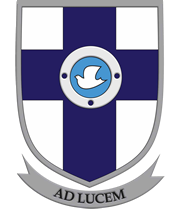
Policy
Language Policy
1. INTRODUCTION
This is the language policy of Martie du Plessis School and was drafted in accordance with the terms of the Constitution of the Republic of South Africa, Act 108 of 1996; the South African Schools Act, Act 84 of 1996 (‘the Schools Act’); the National Educational Policy Act, Act 27 of 1996; applicable provincial legislation on school education; judgements of the South African courts; the International Convention on the Rights of the Child; the African Charter on the Rights and Welfare of Children; the Norms and Standards for Language Policy in Public Schools, 1997 (GN 1701 dated 19 December 1997) and the guidelines of the Pan South African Language Board.
2. FACTORS TAKEN INTO CONSIDERATION
In drafting this policy, the following factors have been considered:
- The interest of the learners
- The interest of the school community
- The interest of the community in which the school is located
- The capacity of the school
- The resources and staff available to the school
- International best practices with regard to class sizes and language in education, with specific reference to the importance of mother tongue education.
3. LANGUAGE POLICY
The language policy of a school consists of two aspects:
- The language of tuition (in our case Afrikaans and English)
- The languages offered as subjects (in our case Afrikaans, English and Sesotho)
4. THE LANGUAGE OF TUITION
4.1 The school is a parallel medium institution. The languages of tuition are English and Afrikaans from grade R to grade 12.
4.2 Regarding the language of tuition as used by Martie du Plessis, the following:
4.2.1 In the case of minors, parents may choose the language of tuition.
4.2.2 This choice of language (Afrikaans/English) must be stipulated on the application form.
4.2.3 In order to allow the learner to develop to the maximum and to teach successfully, the learner must have mastered the chosen language. If not, the language handicap becomes an additional external obstacle to learning.
4.2.4 If an application is received from a learner for Afrikaans or English medium tuition and there is a vacancy, the learner must be accommodated.
5. LANGUAGES OFFERED AS SUBJECTS
5.1 Afrikaans Home language and First additional language According to the GET curriculum in grade 1 to 9. In grade 10 to 12 it is offered according to FET curriculum.
5.2 English Home language and First additional language According to the GET curriculum in grade 1 to 9. In grade 10 to 12 it is offered according to FET curriculum.
5.3 Sesotho Home language and First additional language (if there is a need) In grade 10 to 12 it is offered according to the FET curriculum. Sesotho First additional language can only be offered if staff establishment makes it possible.
6. POLICY REGARDING MULTILINGUALISM IN THE SCHOOL
6.1 Martie du Plessis offers three languages as subjects, viz. English, Afrikaans and Sesotho.
6.2 Learners who can speak these languages (or other languages) are allowed to use them freely on the school grounds or in the hostel. There is no restriction on the language with which learners and/or staff communicate with each other.
6.3 A third national language is not offered at the school because the learners already experience language problems and the learning of a third language is therefore not an option.


